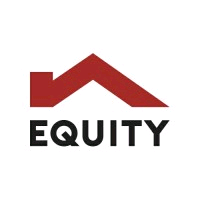Equity Bank Limited has moved to increase its presence in Ethiopia as the nation formally welcomes foreign involvement in its financial sector.
In a recent meeting with the Ethiopian Investment Commission (EIC), Group CEO James Mwangi received assurances from Commissioner Zeleke Temesgen Boru that the bank would receive institutional support for its market debut.
The main topic of conversation during the meeting was the terms of the bank’s entry into Ethiopia’s financial industry. This marks a significant turning point for the region’s economic integration and for Equity.
Utilisation of Ethiopia’s financial sector liberalisation by Equity Bank
Mwangi emphasised that Equity Bank had always planned to grow in Ethiopia and that the recent financial sector liberalisation offered the ideal opportunity.
He stressed the bank’s goal of making investments and setting an example for other international organisations looking to do business in the nation.
Equity Bank has a wealth of experience that could hasten Ethiopia’s financial sector modernisation. Equity Bank operates in Kenya, Tanzania, Rwanda, the Democratic Republic of the Congo, and other African markets.
Why is Equity Bank’s eye on Ethiopia?
With a population of more than 120 million, Ethiopia offers a vast and mainly unexplored market for banking services. With private sector credit making up only 15 per cent of GDP, the country has one of the lowest banking penetration rates on the continent, compared to over 30 per cent in Kenya and Tanzania.
This indicates much space for expansion in credit, deposit mobilisation, and financial intermediation. By implementing cutting-edge banking solutions and expediting access to financial services for millions of underserved people, Equity seeks to close this gap.
The regulatory environment has also changed to reflect this change. In December 2024, Ethiopia enacted new banking laws that permit foreign banks to open branches, create subsidiaries, or purchase up to 40 per cent of local businesses.
The National Bank of Ethiopia released guidelines in June 2025 requesting applications from foreign banks.
In addition to these changes, the nation implements international prudential standards like Basel guidelines and IFRS 9 to guarantee robust governance and systemic resilience.
This modernisation of regulations is anticipated to boost long-term investor confidence and make the banking industry more competitive.
Regional lenders rush to enter the Ethiopian market
Equity Bank’s entry into Ethiopia is part of a larger trend of regional lenders, such as Kenya’s KCB Bank Group, looking to enter the second-most populous nation in Africa.
Despite the enormous opportunities, the Ethiopian market is still highly concentrated, with the state-owned Commercial Bank of Ethiopia controlling more than half of the industry’s assets.
Therefore, the ability of new players like Equity to innovate in digital banking and financial inclusion, as well as market preparedness and regulatory oversight, will be critical to success.
This action reaffirms Equity’s mission to improve lives and livelihoods throughout the continent by providing inclusive financial services.












